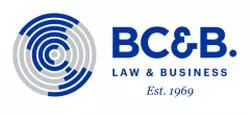The so-called Patent Prosecution Highway (PPH) is a program which main objective is to facilitate cooperation amongst patent offices for examination of patent applications pertaining to the same family. In this context, a patent family involves a group of patents filed in different countries that claim the same priority rights and the same subject matter. Recently, Mexico has entered into several agreements with different patent offices in order to implement PPH as a benefit to Mexican citizens and citizens of other countries.
The first proceeding for accelerated examination was implemented by the United States Patent Office (USPTO) and the Mexican Institute of Industrial Property (IMPI). The offices started with a trial period as of March 1st, 2011, set to expire on February 29th, 2012.
The second proceeding was implemented with the Japanese Patent Office (JPO) and IMPI as of July 1st, 2011.
The third proceeding is supposed to be available as of October 1st 2011 with the Spanish Patents and Trademarks Office (OEPM) and IMPI, which rules of operation have not been published yet.
Although the intent of the PPH is to "leverage fast-track patent examination procedures to allow applicants in both countries to obtain corresponding patents faster and more efficiently", in the practice, the procedure has not been very appealing to applicants.
The requirements for fast-track prosecution of Mexican patent applications under the PPH for US and JP applications are as follows:
1. Priority claim.
Mexican patent applications eligible for the PPH proceeding must:
a. Claim US or JP priority (either through Paris Convention or PCT); or
b. Claim PCT priority: These include Mexican National stages of International Patent applications (PCT filings) that in turn:
i. do not claim priority; or
ii. claim priority from another PCT filing that does not claim priority as well.
2. Timing.
The request for fast-track examination must be filed before the IMPI starts the substantive examination procedure, provided that formalities have been complied with and the application has been published.
3. Documents to submit.
a. A letter of request (free form).
b. Copies of USPTO/JPO-issued office actions that deem the claim(s) allowable, including Spanish translation.
c. Amendments to the Mexican application claims conforming them to those allowed by the USPTO. (If required)
d. Copies of the claims allowed by the USPTO/JPO with Spanish translation, along with every office action relevant for the subject matter regarding the claims of interest (including post fast-track request). These documents may be omitted in case they are available through the Public Patent Application Information Retrieval (Public PAIR) system of the USPTO or the Asian Industrial Property Network (AIPN). For JP machine translations may be submitted, but the examiner may request a better translation.
e. A listing of all the relevant prior art, including copies of all non-patent literature and of those patents not available to IMPI. IMPI will request the submission of the same if any. For the case of the US the Information Disclosure Statement (IDS) is enough, but Spanish translation is necessary. As the agreement is silent in this regard, the general rules of Mexican law should apply, whilst for the case of JP applications, the translation is not necessary as expressly stated in the PPH agreement.
f. Claims comparison. The applicant must provide IMPI with a table comparing the content of the Mexican claims in order to demonstrate that they conform to those allowed by the USPTO/JPO.
The IMPI may issue a single time request if something is missing under the PPH agreement with the USPTO. For JP cases, under the Mexican applicable law the IMPI should also issue a single time request. If lack of compliance persists, IMPI will deny fast-track examination and the application will continue its normal course. If fast-track is accepted, IMPI will immediately examine the application. Amendments of applications accepted for fast-track prosecution are limited to the matter allowed in the USPTO/JPO. In this case, the claims comparison must be filed along with each amendment. Amendments made outside the scope of the USPTO/JPO analysis will cause the application to continue prosecution outside the fast-track proceeding.
For the case of the JPO, the PPH agreement is also applicable to PCT applications examined by JPO as International Preliminary Examination Authority (IPEA) under PCT. This means that the preliminary written opinion of JPO as International Search Authority (ISA) is not eligible for PPH. The requirements are basically the same than for normal JPO applications for PPH, with the obvious changes regarding the availability of documents at PATENSCOPE
For many years in the Mexican practice, the substantive examination of Mexican patent applications has been promoted by conforming the Mexican application claims not only to the granted claims of US or EP and patents from other PCT examination offices (in certain cases upon request by the examiner), within the normal procedure. This has been made either by amending the claims before filing or by filing a voluntary amendment in a stage previous to the substantive examination. Although such amendments do not ensure fast-track examination, they do facilitate substantive examination and reduce prosecution time. This may be the main reason why applicants are not actively using the PPH procedure yet. However, on a case-by-case basis the use of PPH might be evaluated, according to the urgency for grant, the balance on the documents available in PAIR, AIPN and PATENTSCOPE, and the need for translation of documents, which for some cases might make it cost and time effective while in other cases might not.
![]() More information regarding the PPH procedure
is available at the following links in the IMPI website:
More information regarding the PPH procedure
is available at the following links in the IMPI website:
PPH IMPI-USPTO:
http://www.impi.gob.mx/work/sites/IMPI/resources/LocalContent/2476/2/Pilot_Program_PH_MX_USPTO.pdf
PPH IMPI-JPO:
http://www.impi.gob.mx/wb/IMPI/english
The content of this article is intended to provide a general guide to the subject matter. Specialist advice should be sought about your specific circumstances.

